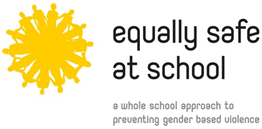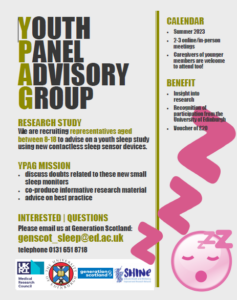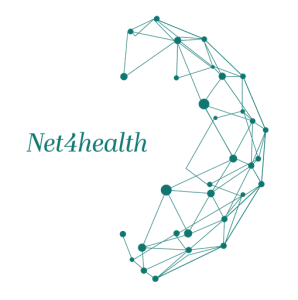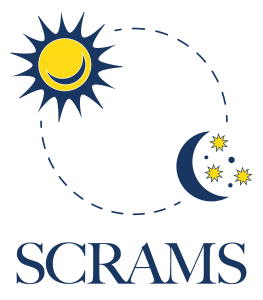SHINE Affiliated Projects
The aim of the Schools Health and Wellbeing Improvement Research Network (SHINE) is to support schools in addressing their health and wellbeing needs with a focus on mental health. SHINE uses a data-led, systems-level approach to support health improvement action within the school setting. As the SHINE network develops, a key function is the identification of school research needs and priorities. SHINE will support high-quality research which has a clear benefit for schools participating in the research project and/or for the wider schools community through our affiliation process. The information below explains what being an affiliated study means for you.
Benefits of SHINE affiliation
Researchers on SHINE affiliated projects will be able to access:
- Support from SHINE researchers and schools in order to develop studies
- Access to a network of ‘research-ready’ schools with a pre-existing data infrastructure
- Support with school recruitment
- Support with incorporating knowledge exchange into your research
- Opportunities to collaborate and share knowledge with our network of policy, practice and academic partners to promote impact
- Network logo and branding for project outputs and publicity materials
- The SHINE webinar series to promote your research project to SHINE schools.
Requirements and how to apply
Please submit a completed SHINE Affiliated Project Request Form to the Network Manager (Dawn.Haughton@glasgow.ac.uk) to be reviewed by the SHINE Affiliate Board. Your application should include information demonstrating the benefit for schools participating in the research project and/or the wider schools community. Following this, you will receive a decision and/or feedback on your project.
SHINE affiliation should ideally be sought before a bid for funding is submitted. It is open to PhD studentships and fellowship applications as well as standard grant applications.
If you have any questions about this process, please contact Dawn Haughton.
Click here to access the form:
Affiliated Projects
 Crowdsourcing for Adolescent Health : Using app technology to connect young people with their health data (supporting research and improvement planning) – citizen science and crowdsourcing.
Crowdsourcing for Adolescent Health : Using app technology to connect young people with their health data (supporting research and improvement planning) – citizen science and crowdsourcing.
Research is needed to help us understand what behaviours change our health for better or worse, and what influences those behaviours. Some behaviours are easier to measure, e.g. technology in our phones can count how many steps we do each day. However, other behaviours are more difficult to measure, they might be embarrassing or harder for people to explain because they relate to feelings.
Why might young people provide health data for research?
This research project from the University of Edinburgh is based around the idea that providing data for research is a behaviour. Therefore, we need to learn what would encourage young people to provide health data. We are testing two approaches which we think might encourage data collection through an app:
Citizen science = members of the public become scientists by helping to collect and make sense of data. Eg. the RSPB Big Garden Birdwatch – people submit data about the birds they see in their garden during 1 week to help us understand bird populations.
Crowdsourcing = when lots of people submit information to help each other solve a problem or raise awareness of an issue. Eg. Lego have a platform for people to suggest new kits, other people then vote on which kits should be produced.
Within the new crowdsourcing app we want to:
- make sure the data collected are useful to young people.
- take a crowdsourcing approach to sharing information about what affects young people’s health, to help bring about improvements

Equally Safe at School (ESAS) is a whole school approach to address gender-based violence in secondary schools in Scotland. It helps schools build a positive culture in which staff and students work together to prevent GBV and feel more confident and skilled in responding to incidents and disclosures of sexual harassment/violence. Led by Professor Kirstin Mitchell at the CSO/MRC Social and Public Health Sciences Unit, University of Glasgow, the evaluation of the programme begins in 2023, supported by SHINE. Schools who are interested to take part can contact the team at sphsu-esas@glasgow.ac.uk . Further information about participation can be found here.
 AMBIENT Sleep Study led by Dr Heather Whalley, University of Edinburgh. This project will explore new methods to measure young people’s sleep. Young people will be invited to act as citizen scientists and product reviewers to trial and assess the new methods proposed.
AMBIENT Sleep Study led by Dr Heather Whalley, University of Edinburgh. This project will explore new methods to measure young people’s sleep. Young people will be invited to act as citizen scientists and product reviewers to trial and assess the new methods proposed.
The Universities of Edinburgh and Glasgow have joined forces, with the support of SHINE, to work with young people from the age of 8 to 18 years to help shape a study into sleep in young people, which will use new contactless sleep monitors to track sleep patterns across this age range. The study team would like to work with a youth panel advisory group to advise the team. You can download the poster here to put on your school noticeboard or pass on to HWB pupil committees. find out more by emailing genscot_sleep@ed.ac.uk

Anxiety: Moodhwb trial: An online programme/app developed for young people with young people and families/carers to support their mood and well-being; Moodhwb was recently awarded a ‘Digital Innovation Award’ by the Association of Child and Adolescent Mental Health (ACAMH).
Many young people are not getting any help and there are long waiting lists for services. This programme could provide valuable support for young people with low mood and anxiety. It uses engaging illustrations and animations to communicate information about mental health and offers personalised support, flagging the most relevant information to the individual user. Do you know young people and parents/carers who would be interested to trial this resource and provide feedback? More information available here or at Elaine.Hindle@glasgow.ac.uk

Beyond Behaviour led by Dr Gale MacLeod, Dr Martin Toye and Robin Dallas-Childs, University of Edinburgh. This project explores the routes into and social consequences of a behaviour diagnosis in sleep@ed.ac.uksecondary school for young people. This project works with Scottish secondary pupils, their families and school staff to explore what it is like to have a diagnosis for a neurodevelopmental disorder such as Attention Deficit Hyperactivity Disorder (ADHD) and behavioural disorders such as Oppositional Defiant Disorder (ODD). The study also looks at what it is like for pupils who do not have a diagnosis of a behavioural disorder but who at times and for various reasons can need some additional support to help them manage their behaviour in school. The study explores the reasons why some pupils are referred for diagnosis, and others are not. Find more at beyond.behaviour@ed.ac.uk
 CLOCK OFF led by Professor Sharon Simpson and Dr Anne Martin from the Complexity Programme at the Social and Public Health Sciences Unit, University of Glasgow. Researchers at the University of Glasgow invite you to take part in the CLOCK OFF study which has received ethical approval. The purpose of the study is to develop and refine a peer-led school-based programme to reduce night-time interactive electronic device and social media use among young people (12-13 years). We will work with young people, school staff and parents/guardians/carers to develop this programme in both Scotland and Wales. Full details about the study and what it would mean for your school are available here . A brief summary is also available in a short video for young people. Young people will be invited to take part in a four-week programme of engagement ( 4 one and a half hour sessions). If you are keen to be involved in this exciting study; you can contact Anne Martin the lead on the study direct Anne.Martin@glasgow.ac.uk
CLOCK OFF led by Professor Sharon Simpson and Dr Anne Martin from the Complexity Programme at the Social and Public Health Sciences Unit, University of Glasgow. Researchers at the University of Glasgow invite you to take part in the CLOCK OFF study which has received ethical approval. The purpose of the study is to develop and refine a peer-led school-based programme to reduce night-time interactive electronic device and social media use among young people (12-13 years). We will work with young people, school staff and parents/guardians/carers to develop this programme in both Scotland and Wales. Full details about the study and what it would mean for your school are available here . A brief summary is also available in a short video for young people. Young people will be invited to take part in a four-week programme of engagement ( 4 one and a half hour sessions). If you are keen to be involved in this exciting study; you can contact Anne Martin the lead on the study direct Anne.Martin@glasgow.ac.uk
 Net4Health led by Dr Mark McCann at the Social and Public Health Sciences Unit, University of Glasgow. Following on from studies conducted in 1987 and 2006, the research team are keen to revisit schools in west and central Scotland to investigate the factors which best account for the decline in adolescent mental health to see what, if anything, has changed. There are many different mechanisms through which friendships, emotional support, and strained relationships may affect wellbeing, social development, health risk behaviours and educational aspirations. The whole school approach to health improvement can be enhanced with a better understanding of the relational mechanisms influencing health (e.g. peer influence, social learning, or social exclusion) combined with better data on structure and collective behaviour within and between peer friendship groups.
Net4Health led by Dr Mark McCann at the Social and Public Health Sciences Unit, University of Glasgow. Following on from studies conducted in 1987 and 2006, the research team are keen to revisit schools in west and central Scotland to investigate the factors which best account for the decline in adolescent mental health to see what, if anything, has changed. There are many different mechanisms through which friendships, emotional support, and strained relationships may affect wellbeing, social development, health risk behaviours and educational aspirations. The whole school approach to health improvement can be enhanced with a better understanding of the relational mechanisms influencing health (e.g. peer influence, social learning, or social exclusion) combined with better data on structure and collective behaviour within and between peer friendship groups.
Further details about this project can be found in this information sheet, or by contacting Dr Mark McCann, the project lead, at Mark.McCann@glasgow.ac.uk
- AMBIENT Sleep Study led by Dr Heather Whalley, University of Edinburgh. This project will explore new methods to measure young people’s sleep. Young people will be invited to act as citizen scientists and product reviewers to trial and assess the new methods proposed.
- Beyond Behaviour led by Dr Gale MacLeod, Dr Martin Toye and Robin Dallas-Childs, University of Edinburgh. This project explores the routes into and social consequences of a behaviour diagnosis in secondary school for young people. The project aims to work with 6 secondary schools.
- CLOCK OFF led by Professor Sharon Simpson and Dr Anne Martin from the Complexity Programme at the Social and Public Health Sciences Unit, University of Glasgow.
Researchers at the University of Glasgow invite you to take part in the CLOCK OFF study which has received ethical approval. The purpose of the study is to develop and refine a peer-led school-based programme to reduce night-time interactive electronic device and social media use among young people (12-13 years). We will work with young people, school staff and parents/guardians/carers to develop this programme in both Scotland and Wales. Full details about the study and what it would mean for your school are available here . A brief summary is also available in a short video for young people. Young people will be invited to take part in a four-week programme of engagement ( 4 one and a half hour sessions)
If you are keen to be involved in this exciting study; you can contact Anne Martin the lead on the study direct Anne.Martin@glasgow.ac.uk or email Dawn Haughton at Dawn.Haughton@glasgow.ac.uk.
 Net4Health led by Dr Mark McCann at the Social and Public Health Sciences Unit, University of Glasgow.
Net4Health led by Dr Mark McCann at the Social and Public Health Sciences Unit, University of Glasgow.
Following on from studies conducted in 1987 and 2006, the research team are keen to revisit schools in west and central Scotland to investigate the factors which best account for the decline in adolescent mental health to see what, if anything, has changed. There are many different mechanisms through which friendships, emotional support, and strained relationships may affect wellbeing, social development, health risk behaviours and educational aspirations. The whole school approach to health improvement can be enhanced with a better understanding of the relational mechanisms influencing health (e.g. peer influence, social learning, or social exclusion) combined with better data on structure and collective behaviour within and between peer friendship groups.Further details about this project can be found in this information sheet, or by contacting Dr Mark McCann, the project lead, at Mark.McCann@glasgow.ac.uk or email Dawn Haughton at Dawn.Haughton@glasgow.ac.uk.
Help seeking in adolescence: the importance of mental health stigma and literacy led by Dr Claire Goodfellow at the Social and Public Health Science Unit, University of Glasgow. Stigma is a key barrier to help-seeking for a mental health problem among adolescents. This is particularly concerning as adolescents are particularly vulnerable to the emergence of mental health problems. Adolescents are also among the least likely to seek help. This may be due to lower mental health literacy among this age group ( ie. young people’s knowledge about causes and treatments of mental health problems and hoe to seek help), and also due to high level of perceived stigma from peers and family. This research project has two central aims. One is to speak to young people living in rural communities about how stigma towards mental health problems affects them and their willingness to seek help. Another is to have young people co-produce dissemination materials to ensure that key research findings are shared in a way that is maximally engaging for young people and other key audiences they identify.
- Further development of a digital programme (MoodHwb) for adolescent depression Led by Dr Rhys Bevan-Jones, University of Cardiff. Further details can be found on this page. You can also watch this short video with Dr Bevan-Jones talking about the Moodhwb project.
- Sleep, circadian rhythms and mental health in schools (SCRAMS). Led by Professor Daniel Smith, University of Glasgow. Read more about the project here in our SHINE research highlight SCRAMS document.
- TeenCOVIDLife Led by Professor David Porteous, University of Edinburgh
 https://www.ed.ac.uk/generation-scotland
https://www.ed.ac.uk/generation-scotland
- Lockdown loneliness and beyond: Development and evaluation of a gamified cognitive bias modification intervention. Led by Professor Simon Hunter, Glasgow Caledonian University
- Feasibility study of sleep and mood in schoolchildren. Led by Professor Daniel Smith, University of Glasgow.
Read the research briefing: Feasibility of sleep and mood in Scottish schoolchildren.
